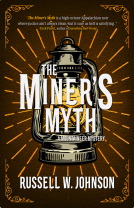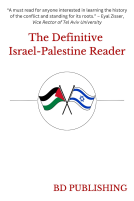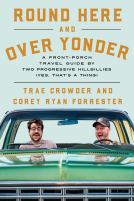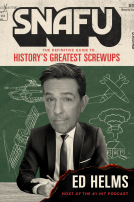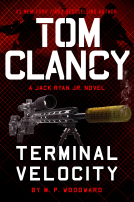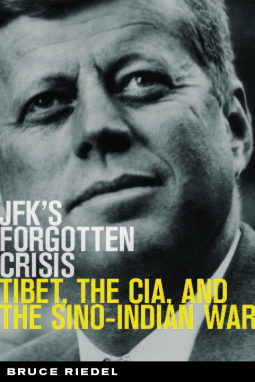
JFK's Forgotten Crisis
Tibet, the CIA, and Sino-Indian War
by Bruce Riedel
This title was previously available on NetGalley and is now archived.
Send NetGalley books directly to your Kindle or Kindle app
1
To read on a Kindle or Kindle app, please add kindle@netgalley.com as an approved email address to receive files in your Amazon account. Click here for step-by-step instructions.
2
Also find your Kindle email address within your Amazon account, and enter it here.
Pub Date Jul 21 2015 | Archive Date Jan 04 2016
The Brookings Institution Press | Brookings Institution Press
Description
The Cuban Missile Crisis defined the presidency of John F. Kennedy. But the same week the world stood transfixed by the possibility of nuclear war between the United States and the Soviet Union, Kennedy was also consumed by a war that has escaped history’s attention, yet still reverberates significantly today: the Sino-Indian conflict.
As well-armed and equipped troops from the People’s Republic of China surged into Indian-held territory in October 1962, Kennedy ordered an emergency airlift of supplies to the Indian army. At the same time, he engaged in diplomatic talks that kept the neighboring Pakistanis out of the fighting. The conflict came to an end with a unilateral Chinese cease-fire, relieving Kennedy of a decision to intervene militarily in support of India.
Bruce Riedel, a CIA and National Security Council veteran, provides the first full narrative of this crisis, which played out during the tense negotiations with Moscow over Cuba. He also includes another, nearly forgotten episode of US espionage during the war between India and China: covert US support of Tibetan opposition to Chinese occupation of Tibet. He details how the United States, beginning in 1957, trained and parachuted Tibetan guerrillas into Tibet to fight Chinese military forces. The covert operation to help precipitate the conflict but the United States did not end its support of it until relations between the United States and China were normalized in the 1970s.
Riedel tells this story of war, diplomacy, and covert action with authority and perspective. He draws on newly declassified letters between Kennedy and Indian leader Jawaharlal Nehru along with the diaries and memoirs of key players and other sources make this the definitive account of JFK’s forgotten crisis. This is, Riedel writes, Kennedy's finest hour as you have never read it before.
A Note From the Publisher
Also available as an ebook for $22.00
Advance Praise
“This
is a terrific book. It is well written, cogently argued and has a lot
about Kennedy that surprised us. “
—Jim Blight and Janet Lang, authors of The
Armageddon Letters: Kennedy, Khrushchev and Castro in the Cuban Missile
Crisis.
“In JFK's Forgotten Crisis, Bruce Riedel
masterfully describes President Kennedy's leadership in handling both the Cuban
missile crisis and the Sino-Indian War. Riedel transports the reader back
to one of the most important chapters in America's foreign policy using
intimate detail, insight, and instructive lessons to future policy-makers.”
—Stephen Hadley, former National Security Adviser
“With both precision and broad strokes, Bruce Riedel peels back the diplomatic, military, and intelligence inner workings of a crisis—the Sino-Indian war—that would draw America to the edge of war with China in the piercing days of October-November 1962. Riedel takes us into CIA's Tibet and other covert action programs of the era, gives us a virtual seat next to JFK, India's Nehru, China's Mao and other icons of the day as they weighed their next move and allows us to understand how the worst outcome—war with China—was avoided. Riedel brilliantly road maps the decades long ripple effect of decisions made by JFK by finding and connecting dots otherwise lost to history. Every aspect of this book, from its review of Korean War-era intelligence to the geopolitical role of military aid to India or Pakistan, offers valuable lessons for how America's diplomatic skill, military strength and intelligence know-how should be used in today's crisis filled global environment.”
—David Cohen, former Director of Operations, Central Intelligence Agency
Available Editions
| EDITION | Hardcover |
| ISBN | 9780815726999 |
| PRICE | $29.00 (USD) |
Links
Average rating from 6 members
Featured Reviews
 Douglas O, Reviewer
Douglas O, Reviewer
The title is in part a misnomer because the Asian crisis started before Kennedy and continued long after. The book does justice to the whole story across several decades. It could be a difficult crisis to understand but it is well written and the issues are made accessible to the reader. It is indeed strange that a crisis of such length and seriousness has received so little attention from historians and the Cuban crisis, because it bordered the United States probably, has received extensive coverage. Now, at last, we have an overdue analysis of this significant part of Kennedy's legacy.
We all know about the Cuban Missile Crisis and how President Kennedy faced down the Soviet Union to resolve the matter. I was very surprised to learn that at the same time, their was another, equally dangerous, situation developing between China and India. This is the story of the Chinese invasion of Indian-held territory, almost leading the world into a war between the two most populous countries on Earth. Riedel masterfully covers how JFK dealt with the crisis, averting what may have become World War Three. And of the U.S.'s support for Tibet against China. It's amazing to me how Kennedy could juggle two such crises at once. It leaves me with a feeling of almost awe in how talented he was. In a short, concise book, Riedel covers the crisis very well. I found this book to be very informative, well written, well documented, and fair. All in all, this is quite the impressive little book. Well worth reading!
Readers who liked this book also liked:
John Lee Bishop
Biographies & Memoirs, Nonfiction (Adult), True Crime
Silvia Moreno-Garcia
Historical Fiction, Literary Fiction, Sci Fi & Fantasy
James McBride
General Fiction (Adult), Historical Fiction, Literary Fiction



